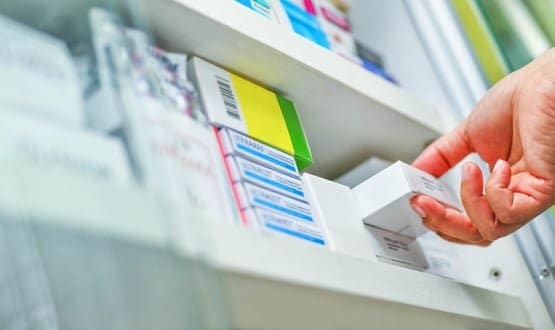Delayed phase four EPS pilot to begin this year
- 11 December 2018

The postponed ‘phase four’ pilot of NHS Digital’s electronic prescription programme is finally underway, in what the organisation labelled a “major step in the road to universal electronic prescriptions”.
Eight GP practices across England will trial the latest stage of the electronic prescription service (EPS) before the end of 2018, enabling prescriptions for all patients to be sent electronically to a pharmacy of their choosing.
GP practices in Southend-on-Sea, Bury, Plymouth, London, Nottingham, Salford, Leeds and Cornwall will begin pilots this year, followed by surgeries in Wolverhampton, East Sussex, Berkshire, Brighton, London, Devon, Cornwall, Sheffield and Doncaster in 2019.
If successful, the new functionality will be made available to all GP practices in England and could eventually see over 95% of all GP prescriptions processed digitally.
Ian Lowry, director for digital medicines and pharmacies at NHS Digital, said: “The launch of this pilot is excellent news for GPs, pharmacists and patients and is a further important step towards the digital future for NHS prescribing and dispensing.”
“Every single prescription that is sent electronically, rather than via paper, saves money for the NHS as less time and valuable resource is spent processing and storing the paper prescriptions.”
Until now, patients could only have their prescriptions processed electronically if they had chosen a regular nominated dispenser.
Patients without a nomination will still receive a paper copy listing what has been prescribed, however this will now contain a barcode that pharmacy staff can scan to download their electronic prescription from the NHS Spine.
Patients with a nomination can still have their prescriptions sent electronically to their nominated pharmacy without needing a paper copy.
Farhan Ali, pharmacist manager at Lloyds Pharmacy in Ramsbottom, said: “With more prescriptions going electronic, more are available to view on the EPS tracker. This means we can track and locate more prescriptions quickly and easily, without having to spend valuable time calling the surgery to query a prescription’s status or whereabouts.
“We’ll also save time at the end of every month when my team spend hours collating, counting, processing and posting paper prescriptions. Fewer paper prescriptions means less admin work and more time made available for us as pharmacy professionals to spend on what’s important – treating and supporting patients.”
The EPS programme is one of the longest-running national digital programmes in the NHS.
Plans for phase four pilots were announced as far back as August 2016, before the programme ran into setbacks.
In April, NHS Digital announced that use of EPS would be pushed out nationally across all urgent care settings in England.
Keith Farrar, senior responsible owner for digital medicines at NHS England, added: “The electronic prescription service is already reducing the NHS administrative burden whilst improving patient care, and this latest development is another step towards a more efficient digital NHS.
“As the NHS develops its long-term plan, we will be increasingly looking to new technology like this to drive improvements in patient care and improve our efficiency.”



